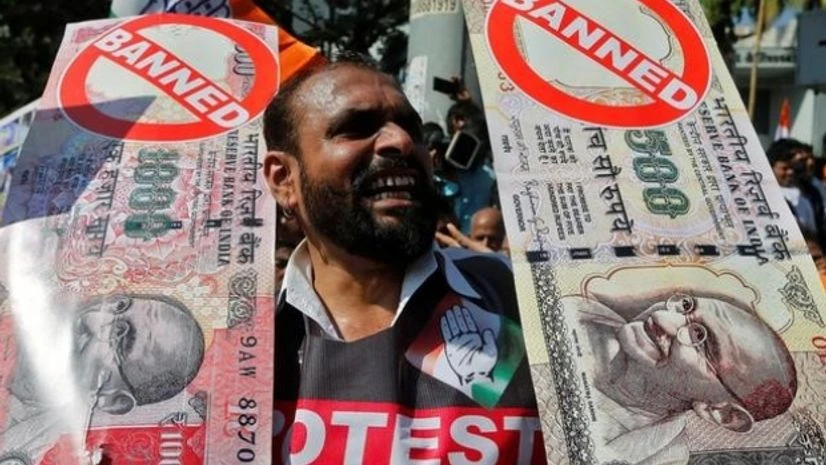.
The income-tax (I-T) department, believe it or not, is still working on cases pending from the demonetisation of currency notes in 1978. The cases are sensitive enough to be handled at the level of members of the Central Board of Direct Taxes. Thirty-eight years later, the office which puts up those files as “work connected with High Denomination Bank Notes (Demonetisation) Act, 1978,” is that of member (investigation).
It is this same office that is also responsible for organising the current spate of countrywide raids on cachés of illegal currency notes in the present round of demonetisation. A former board member of the I-T department said it’s the time spent on such legacy issues that scuttle the effectiveness of the puny I-T investigation department to focus on emerging ones.
The biggest of those emerging issues the department is struggling with, in the current demonetisation exercise, is the risk posed by the non-credit cooperative societies. Data pouring in from the Financial Intelligence Unit (FIU) of the revenue department is repeatedly showing this. But, tax officials have little room to prise open the finances of these societies, as there are hardly any tax provisions to tap them. Yet, the FIU data show many of these societies have become the biggest draw for laundering money.
The tax department is working to push amendments in the laws to deal with them. But, even as they are rushing to plug the gap, the strong political lobby, which the cooperatives run, is racing to outflank them.
According to the government’s open data platform, there are 266,401 such non-credit cooperative societies. But this number keeps on changing. For the tax departments, these institutions are a headache as they are adept at masking cash transactions. Their reach is particularly strong among the prosperous states, making them a valuable gateway.
More From This Section
The FIU data is based on suspicious transactions report thrown up by bank records. A government official explained that as district cooperative banks have not been allowed the option to exchange notes, the cooperative societies, which often run their deposits with the former, have had to approach the scheduled banks. “The amount of money that has come to banks from the cooperative societies is massive,” said one of the officials.
There are two sources through which several of these societies would have run up the cash. They could have either generated it from their business or they would have the money deposited by their members as cash. There is no rule that prevents cooperative societies from receiving any amount of deposits from their members, which can be shown as borrowing.
As Association of Persons, they can deposit the same with a bank under the signature of the society without any limit. The interest income on such borrowing is tax deductible even though the societies are treated on a par with enterprises, according to the Companies Act. It is consequently very attractive for people with high cash trove caught on the wrong foot on November 8 to have cut deals to park those.
As Association of Persons, they can deposit the same with a bank under the signature of the society without any limit. The interest income on such borrowing is tax deductible even though the societies are treated on a par with enterprises, according to the Companies Act. It is consequently very attractive for people with high cash trove caught on the wrong foot on November 8 to have cut deals to park those.
Since there are no norms for their nomenclature, some of these institutions brazenly describe themselves as bank. One of the largest ones based at Kozhikode in Kerala describes itself as belonging to “Class 1 Special Bank”, with deposits of above Rs 800 crore. There is no such bank category prescribed by the Reserve Bank of India (RBI). As the open government data source shows, most of these societies operate in Maharashtra, followed by Gujarat and Karnataka. Since many of them are also involved in agricultural activities, their income is largely tax exempt.
Meanwhile, their close cousins, the district cooperative banks, have impleaded themselves among the batch of public interest litigations in the Supreme Court against demonetisation. These banks want the right to exchange notes and hand out money to the public from the deposits made by them on a par with the scheduled commercial banks.
Their interest in being allowed to do so is obvious. Many of them had allowed their members to deposit money in old tenders. But, using the plea of dual regulations, RBI has so far not allowed this sluice gate to open.
RBI has always taken the stand that while the Banking Regulation Act, 1949, is applicable to these cooperative banks, the management-related functions continue to be regulated by the respective state governments and so there is a dual regulation and consequent moral hazard in their operations. But, the non-credit cooperative societies have no such encumbrances to be saddled with and this is where money laundering is supposedly happening, big time.
RBI has always taken the stand that while the Banking Regulation Act, 1949, is applicable to these cooperative banks, the management-related functions continue to be regulated by the respective state governments and so there is a dual regulation and consequent moral hazard in their operations. But, the non-credit cooperative societies have no such encumbrances to be saddled with and this is where money laundering is supposedly happening, big time.
As the director-general of income-tax (intelligence) under the member (investigation) takes on this mammoth responsibility, it finds itself with only 20 officers at the all-India level to undertake this task, according to the department’s own data. There are, of course, state-level directors of investigation to help them, but with such a short staff strength, it is no wonder that cases from the last round of demonetisation are still pending with the department.

)
